Destroyed Recovery. Why Ukrainians Have Nowhere to Return
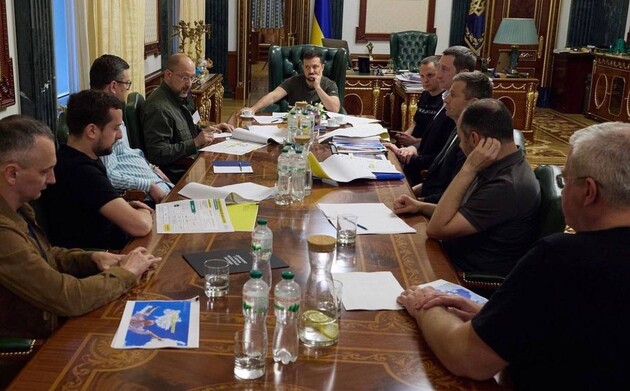
article by Inna Vedernikova, ZN.UA politics editor
and Heorhii Mohylnyi, town planning expert
Putin is taking revenge and systematically destroying our cities. Russian missiles blow up infrastructure facilities and residential buildings. A new grief daily multiplies the old, erasing surnames and names of cities. Against the background of the continuous tragedy of Mykolaiv, Zaporizhzhia, and Kharkiv, who remembers what is happening to destroyed Irpin, Borodianka, and damaged Bucha? Who thinks about how people will spend the winter there, if the whole country is facing problems now? Who, in general, is interested in what was done six months after the liberation of the cities in Kyiv region, Chernihiv region and Sumy region, and where our people are returning to? And are they even returning?
It is precisely about how war erases everything and how the government successfully uses it. After all, there was an echo of the promising Lugano, where officials of all stripes traveled at state expense, pages of presentations of new Ukrainian cities from the Cabinet of Ministers were flipped, dozens of creative groups of the President's Recovery Fund with hundreds of experts who worked there reported. So what? And here’s what.
General situation on the ground
The situation is very critical for people whose housing is damaged, but to a certain extent was suitable for living in summer. Both state and local authorities have promised to help with recovery since spring. However, most of the promises remained unfulfilled. Many people are financially unable to make repairs at their own expense, so with the onset of cold weather, they will be forced to join the ranks of refugees and seek shelter. Meanwhile, starting from April, the Cabinet of Ministers allocated some money for the repair of damaged houses from the Reserve Fund of the state budget. However, there are nuances.
It will be recalled that at the beginning of September (before the massive shelling of October 10, when mainly critical infrastructure objects suffered), according to our sources in the Ministry of Communities and Territories Development, 129,000 housing facilities were destroyed. Of them, 114,000 are private houses, 15,166 are apartment buildings. The analysis of the structure suggests that 17,000 buildings need current repairs, 23,000 need capital repairs and 73,000 buildings are completely destroyed. UAH 1.5 billion was allocated for all these purposes over six months, which is not more than 5 percent of the amount required. Let’s remember this number to move on.
The Cabinet of Ministers allocated funds for carrying out priority works on the restoration of damaged objects, regardless of the form of ownership. The money went in two stages: first, pittance for current repairs, with the line of capital expenditures, including repairs of roofs and walls, being opened only in August. At the same time, a wide list of areas of use was determined, ranging from street cleaning, and dismantling of dangerous structures to the repair of damaged buildings. Working priorities were set locally, the amount of money was insufficient for everything at once: despite there being the right to repair residential buildings, there was no obligation to do so. Everything was decided by the human element plus the decision of the authorities to give full control over the entire financial and organizational mechanism to the regional authorities and the Ministry of Communities and Territories Development, leaving the communities with the function of recording results and executing tasks.
Here it is worth quoting a local official from one of the towns near Kyiv. Although the ideas were expressed this summer, they are still relevant.
“The procedure should have been organized in a different way; the contractors should have been let into the buildings immediately so that they could measure the windows themselves and close them on the spot with a certificate of completion. We would have already glazed over half of the city! Instead, we have, for example, more than 9,000 damaged objects; windows need to be installed in nearly all of them. But we, much as we’d love to, cannot physically visit every house. It will take a year! Therefore, we note down approximate sizes, according to the maximum volume and estimate. After two months of delay (as the data are sent to the region, the region forwards to the Cabinet of Ministers and then transmits everything back), the contractor, determined by the region, measures everything again and provides the necessary amount with certificates of completion. In other words, we are doing a foolish job. And this is happening in wartime, when people will have nowhere to hide from the cold in a matter of months.
But these are the problems of first-category facilities, which were not hit with projectiles, and which incurred minor damage. In the places that were hit, you can’t install a window; they need major repairs, floors need to be dismantled, etc. Firstly, it requires a mechanism and money. Secondly, there must be a reconstruction project. This is a completely different work volume. Who should do the reconstruction project (who is the customer and who is fulfilling it?). What is the contractor selection mechanism? And, ultimately, funding.
For that reason, everything that our commissions examined has been pigeonholed for the time being. How can the city council spend money? How can we spend money on the private sector if it is against the budget code? We need a procedure and a law,” our interlocutor concluded.
Now is not the time to speculate what made the central authorities go this way – total distrust to local authorities or the desire to “solve” issues with contractors on their own (by using governors as their cat’s paw). But in September, when the deadlines had already become crushing, the Cabinet of Ministers sent the procedure down to the community level, which began looking for contractors in the communities and drawing up acts on the spot. This allowed local small businesses, crushed by the war, to somehow to stay on their feet. However, time was critically wasted. In some communities, the situation was exacerbated by staff upheavals. The town of Hostomel has already changed two chiefs of the military and civilian administration; more than half of the victims do not even have property survey documents. A social riot is brewing in the community. There is a new acting head in the town of Borodianka; it is not even possible to sort out who is responsible for what.
Consequently, some of the victims were fortunate enough to receive at least something, but the majority who could not repair their own houses on their own received a letter with a proposal to patiently wait for the adoption of draft law No. 7198. It is exactly what we are talking about. It would appear it is what one has to think about when walking through the broken streets of Irpin or Borodianka.
The law in the pending tray
It was draft law No. 7198 that was supposed to remove controversial issues regarding the procedure for emergency assistance to victims, establishing the procedure for allocating funds to owners of damaged housing. Submitted by a group of deputies on March 24, it was adopted in the first reading by a constitutional majority of 307 votes within a week, on April 1.
It should be noted that during the review of the draft law at the meeting of the specialized committee on March 31, the main co-author of the draft law, head of the Servant of the People party, Olena Shulyak, presented it as initiated by the president, developed jointly with the parliament, the Ministry of Economy, the State Property Fund and the Ministry of Infrastructure. Head of the committee, Dmytro Natalukha, emphasized several times that the draft law should be prepared in an accelerated mode before the second reading.
Due to the general urgent need to quickly pass the law, the committee returned to its review on the night of April 1. According to the information provided by Mr. Natalukha, it was agreed between the factions to reduce the deadline for submission of proposals to a record seven days. But the majority of the committee did not support the revision of its previous decision.
Given the importance of the draft law and its broad support in the first reading, quick adoption was generally expected. Olena Shulyak first promised approval closer to June, then between June and July, after that, by the end of summer... Now winter is coming, and the specialized committee of the Verkhovna Rada on economic development has never even considered it at its meetings.
“Committee chairman Natalukha is personally dealing with it,” the deputies say. Meanwhile, Olena Shulyak has been talking on the air and in the Facebook feed for the seventh month about how everything will be beautiful after the law is passed. At the same time, she’s presenting a super-duper electronic register of damaged property. The question, what is the sake of all this if nothing is being done, is not even discussed. Meanwhile, the Cabinet of Ministers promises that the most transparent compensation mechanism will appear, without, of course, commenting on one’s failures. Somewhere in a completely parallel universe, lives the Office of the President of Ukraine (hereinafter – the OPU) voiced by Kyrylo Tymoshenko reporting daily in telegram-channels how much and what will be built for the victims and internally displaced people. Everyone long ago got confused in the names of programs, funds, registers, numbers, and promises of representatives of state bodies. That’s probably what they counted on.
What happened to the law?
The bill was affected by politics, corruption, lobbying, and bureaucracy combined. Firstly, although the key authors of the document work in the urban planning and regional development committee, the document itself ended up in the economic committee. “There are special internal processes,” explained the knowledgeable deputies. Hence, and, secondly, “in the committee, where there is an industrial lobby, more than 700 amendments were collected. They are about compensation to legal entities and for destroyed industrial facilities – and these topics are absent in that version of the first reading.” Thirdly, the deputies have made it clear with apartments, but cannot find a consensus on private houses, “ensuring a market and transparent procedure.”
At first, realizing that the issue of new housing cannot be budged quickly, Shuliak’s committee allegedly did not panic. “When we realized that we would solve the problem with repairs and people will not wait for an assessment, etc., begging for money – it is available in the Reserve Fund – we calmed down. The local government is also devious. Why are they waiting for the law? As of today, commissions have already been established on the ground. The mechanism is unbalanced, indeed, and the bureaucratic machine fails. But everything should be done by autumn. Moreover, if a person wants and can do the repair himself, then let them do it. May the state assist those who cannot restore housing at all. This is also the right move in the current situation,” the committee contemplated in July.
They didn’t make it until autumn. In the sixth month, they managed to balance the mechanism but not the money. We remember that five per cent of the required amount was allocated from the Reserve Fund. No funds from the United24 presidential fundraising platform were directed to rebuilding communities. According to local officials, only UNICEF is currently helping with recovery (bomb shelters in schools) and so is the Red Cross (purchasing equipment for utilities where it burned down). Not a single European official, who was photographed in the ruins of the cities of Kyiv region, has really helped with the financing of the restoration within the limits of the capabilities of their institution.
“It must be admitted that international partners do not really want to give us money while the war is still going on. There are a lot of declarations, but no documents with a clear algorithm. You pass the law, but where is the money? Is it possible to note that the law will apply when the war ends? After everything that was promised? Therefore, until there is a clear understanding of where we will get the money from and when, no one will vote for the law. And all these hundreds of amendments are trivial manipulation,” MPs emphasize today, while people are finishing repairing their walls and windows on their own. Meanwhile, in Vienna, other people are handing over their tickets to Kyiv – since there’s nowhere to return.
Amendments as useful spam to buy time
In fact, no one is in a hurry to review 708 amendments to the draft law. However, “Dzerkalo Tyzhnya” was able to get acquainted with their content in order to understand the official reasons for the delay in voting. The lion’s share of the amendments are identical terminological proposals that could easily be considered over several days.
Among the conceptual proposals that significantly change what was supported in the first reading, it is appropriate to highlight the following talking points:
- removal of restrictions on the maximum area of destroyed housing compensated by the state (initially no more than 150 m2 was proposed);
- compensation not only for housing, but also for non-residential real estate;
- compensation not only to citizens of Ukraine, but also to foreigners and legal entities;
- allowing free use of funds received as compensation;
- providing for compensation for other valuable property (vehicles, agricultural machinery, etc.).
The Association of Ukrainian Cities also expressed its comments on the draft law in April, disagreeing with the fact that under this Law, the restoration of any infrastructural, economic, communal, or jointly owned object will not be compensated. The absence of norms in the draft law on the future of commercial, industrial premises and property, in particular in multi-apartment buildings, according to Association of Ukrainian Cities, will stop the return of business to Ukraine.
In addition, according to the mayors, relations between local self-government bodies, central bodies, owners, contractors, and the relevant Fund should be fully regulated in draft law 7198. But, according to our information, none of the deputies have communicated with the mayors for all these six months. “At a certain point, it seemed to us that the authorities had lost interest in this draft law and had no intention of adopting it at all,” our sources at the Association of Ukrainian Cities say. It seemed so for a reason.
But could deputies with such different views quickly find a consensus in order to start the housing restoration process on time? They could without problems, simply by stopping “sharing the skin of a bear before killing it.” It was enough just to postpone discussions on issues for which there are still no funds for implementation, and it is unclear when they will appear.
The draft law in its initial version addressed the following four main issues.
- Establishing the legal basis for the creation and operation of the State Register of Property Damaged and Destroyed as a Result of Hostilities.
- Determination of the list of property for the damage or destruction of which the state provides compensation.
- Determination of possible forms of compensation.
- The procedure for confirming obtained loss and rights to compensation.
Which option is better – to repair damaged housing for ten families and provide temporary housing for one family whose home is destroyed, or to build new housing for one family and find temporary housing for ten families, because their damaged houses without repairs are unfit for living in winter? The answer is obvious.
When financial possibilities for compensation are limited, the most rational use of funds is to repair the damaged property – this maximizes the area of restored housing.
Therefore, nothing stood in the way of the preparation of the draft law for the second reading. The working group could:
- Limit the possibility of compensation exclusively to repairs;
- Extend the effect of the procedure for confirming losses to all privately owned real estate.
This approach allows you to quickly start recovery and documentation of losses. And also, without further delay, to expand the list of objects for compensation in the future, making changes to the law with the availability of additional funds for it.
Why don’t the deputies start the reconstruction process, and then take their time, looking for a mutually beneficial content of the next changes to the law, which will already work in the interests of Ukraine?
Moreover, the parliament was able to find the necessary funds for the repair of damaged houses because it was able to find them for the restoration of the “Great Construction” project and the repair of roads that were not damaged by the hostilities. However, there is no money even to conserve - not to rebuild! — houses of wounded Irpin before winter comes. About UAH 1 billion is needed, of which UAH 0.4 billion is just for windows.
Therefore, there is every reason to claim that the draft law initiated by Volodymyr Zelenskyi, which was quickly deemed necessary to be adopted in April, almost immediately became irrelevant due to a change in priorities.
Thus, the draft law, which was supposed to solve a number of important problems of people who suffered from the war, became another problem for them. Meanwhile, it turned into a convenient “excuse” for the local government in situations where it behaved shamelessly, of course, as well as the central government did.
However, could the Cabinet of Ministers, in the conditions of inactivity of the Verkhovna Rada in relation to the adoption of draft law No. 7198, take responsibility and fully provide an action platform both for the discussion of positions and for the priority repair of damaged housing? Of course, it could, but it didn’t want to. The parliament just limited itself to modular towns for Polish money and a PR campaign in Lugano.
Mortgage as another window-dressing
According to the resolution of the Cabinet of Ministers of Ukraine dated August 2, 2022, No. 856, the new preferential mortgage is not at all about the state aiding those in a hopeless situation during the war. Assistance for improving living conditions can be received by people who have a reserve of 20 per cent of the cost of a new apartment for the first payment and a stable income. That is, during the war, the Cabinet of Ministers is concerned with aiding a small segment of the population, whose financial condition is already significantly better than the average in the country.
Moreover, the subsidized mortgage launched on October 1 has a fundamental difference from the previous one. Previously, the banks issued the loan from their own funds, and the state only compensated part of the interest rate. The new mortgage assumes that the state finds an opportunity to get funds for Ukrfinzhytlo for further lending them through banks as intermediaries. That is, for the same number of apartments, the new mortgage will require approximately ten times more financial infusions from the state than the old one.
Yuliya Svyrydenko, First Deputy Prime Minister and Minister of Economy of Ukraine, said that by the end of the year, they plan to issue about 1,500 soft loans. Considering the new financing mechanism and current housing prices, the Cabinet of Ministers had to find an opportunity to attract UAH 2-3 billion for this aim.
The said funds could be enough for repairs and winterization of tens of thousands of damaged apartments and manors, whose owners cannot afford to do it on their own. And into the bargain, what prevented launching, instead of mortgages for the minority, a program of soft loans for repairs of damaged housing for the majority?!
The government, however, chose to use the improvement of living conditions of 1,500 families for self-promotion. But was the government the only one?
Confrontation between the Cabinet, OPU and developers
Moving on to the conclusions, it should be noted that the recovery story has entered the “Bermuda Triangle” zone. Whereas everything is more or less clear with the role of the Cabinet of Ministers and the Parliament, clarification is needed on the batch, which was just as shamefully performed by the presidential office.
So, the curator from the OPU, Kyrylo Tymoshenko, has been in a tough confrontation with the relevant ministry of the Cabinet of Ministers headed by Oleksii Chernyshov all these months. According to our information, the minister (who, it seems, did not pass the casting for the post of prime minister, and will soon assume the position of the head of Naftogaz of Ukraine) has been trying for a long time to get an appointment with the president with his recovery program. However, it was harshly blocked by of Kyrylo Tymoshenko, who continues to report to the country about the success made within the framework of Ukraine’s Fast Recovery Plan.
At the same time, Tymoshenko locked horns not only with Chernyshov but also with the construction lobby, whose interests in the government are represented by Olena Shulyak, the head of the Servants of the People party. Lurking somewhere behind her is the shadow of Andrii Yermank, the chief of the Presidential Office. The whole mess started with Bankova Street’s desire to get new housing quickly and, as a result, the state offer to purchase ready square meters from developers at a fixed price of UAH 25,000–30,000 per square meter. The developers, however, dug their heels in, refusing to sell cheaply. Tymoshenko’s authority to pressurize the hydra, formed by numerous Ukrainian administrations over all 30 years of independence, turned out to be insufficient.
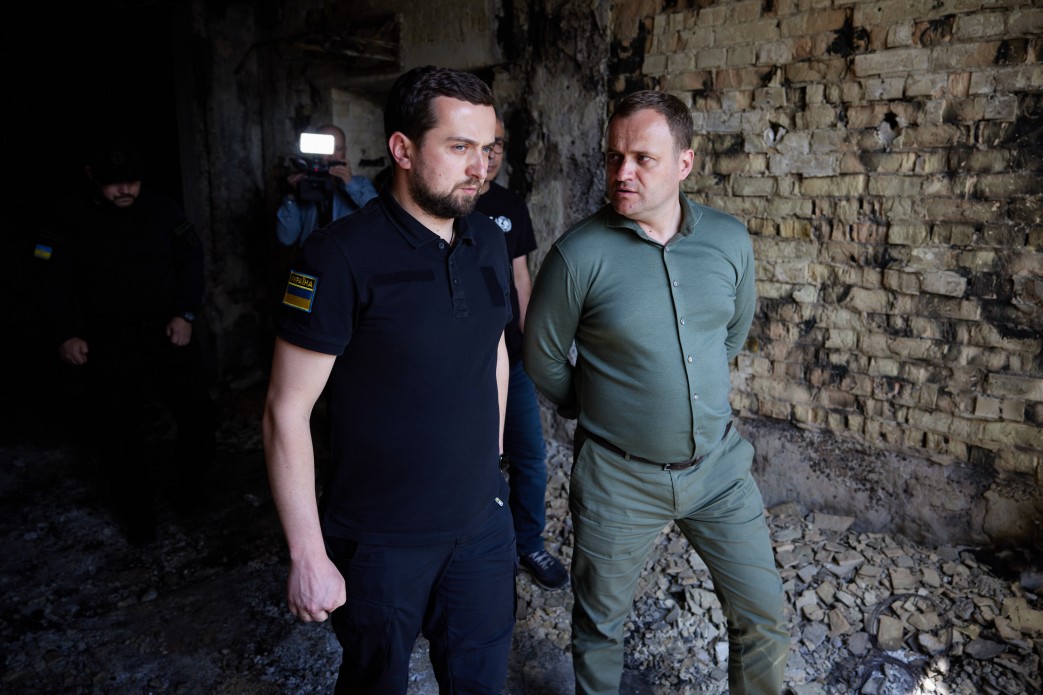
“The program, which Kyrylo Tymoshenko is actively commenting on, is a separate story that does not affect the adoption of the law,” says an MP from the ruling party with knowledge of clashes, explaining the situation. “The OPU talks more about the purchase of housing for IDPs, while we talk about those whose houses was destroyed. Moreover, in our draft law, we give people an opportunity to choose whether to wait for a new home or take a ready-made one. We would like it to be a market-based solution, and not for someone from above to say “these developers sold for 30,000 each, you should buy from them.”
It is reasonable to assume that, apart from the lack of money, one of the key reasons for the rejection of the law is hidden in the conflict between a part of the OPU and the construction lobby of the ruling party. Bankova Street seeks to dictate the conditions throughout the entire recovery process (and the law is there for a long time), telling people whom to buy from and who will build, whereas the developers, along with Olena Shuliak, Lev Partskhaladze, etc., want to have market conditions.
One shouldn’t recklessly take someone’s side here though. “When the cold arrives, they will come crawling back and buy at UAH 50,000 per square meter themselves” – something like this statement was heard at one of the business lunches, where key players of the construction market were present. What is more, while protesting against the fixed price from the state in their patrimony, the developers immediately offered the government to implement this novelty on the building materials market – somehow without considering the interests of its players at all.
However, the whole problem is that, however you look at it, Bankova Street will not go to the lobbyists of the construction market, because, as we have already said, it has no money. It certainly could choose a detour by betting on local authorities and start-up developers. Some would give UAH 25,000 per square meter and even UAH 15,000 for their ready-made ones or building a new one. But here Tymoshenko has already evinced a lack of shrewdness and the ability to negotiate for the cause both with the local authorities and the Cabinet of Ministers. For the OPU, it is unprofitable to invest budget funds heavily in the reconstruction, as in the case of roads in the west of Ukraine: you won’t make much of a profit off of the people who are suffering. It is better to wait for aid from the West.
Unfortunately, as long as Bankova continues to deal with the developers, automatically hampering the vote on draft law No. 7198, the tamed parliament, the Cabinet of Ministers, and the Ministry of Regional Development are still trying to sit on the fence, having essentially failed the process of current and capital repairs on the ground. But instead of somehow rectifying the situation and offering people real ways out (not eye-catching mortgages but rental – we have already written in detail about hundreds of thousands of empty apartments across the country), they remain silent, waiting for the soap bubble of promises that Bankova Street continues to inflate to burst publicly. Hardly anyone will burst into laughter when it happens…
For their part, the government, the president, and the parliament need nothing but honesty towards their suffering but very patient people. At least, they have to explain that “Marshall plans” and wide-ranging recovery with new cities and apartments will take place after the war, when the destruction stops, and the West is no longer afraid to lend money. At best, they have to do whatever is possible every day — adopt the necessary laws and repair the damaged infrastructure in the liberated territories, having worked out clear algorithms of vertical interaction: the cabinet—the region—the community. The bureaucratic red tape in the aid chain should also be reduced as much as possible so that our people scattered all over the world know that someone in Ukraine needs them and is fighting for them and does not sell their lives, homes, future, and faith down the river for the sake of indifference and profit, blaming everything on the war.
Please select it with the mouse and press Ctrl+Enter or Submit a bug











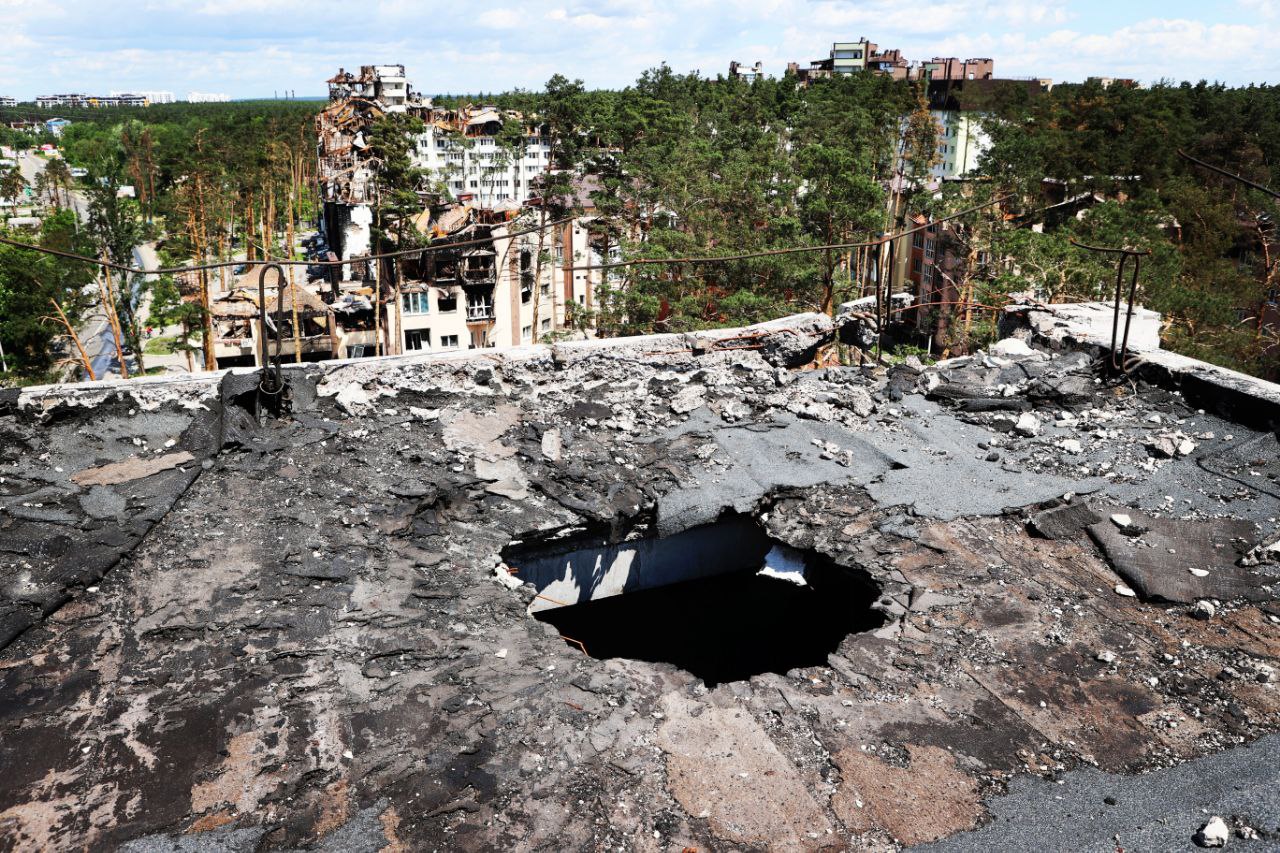
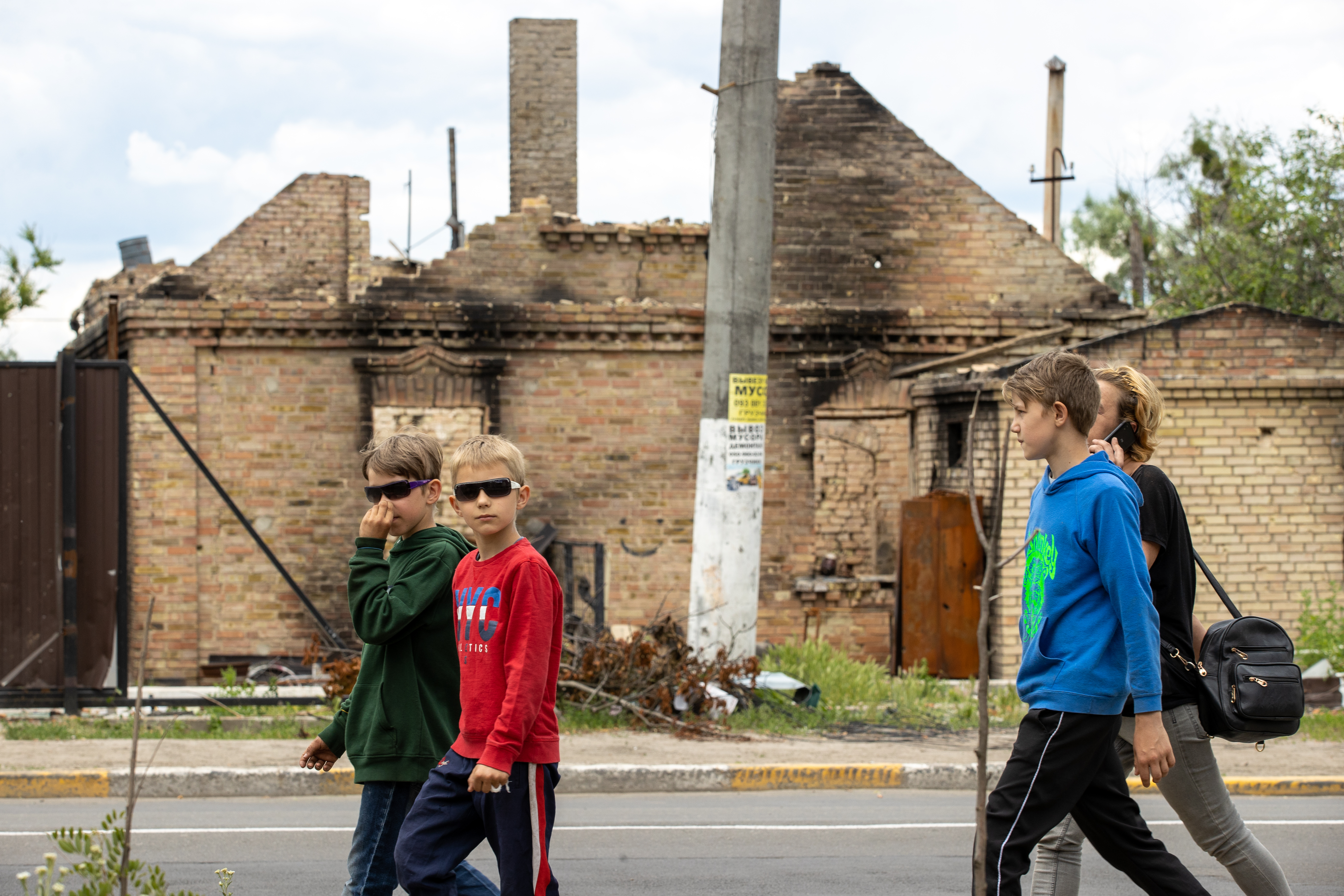
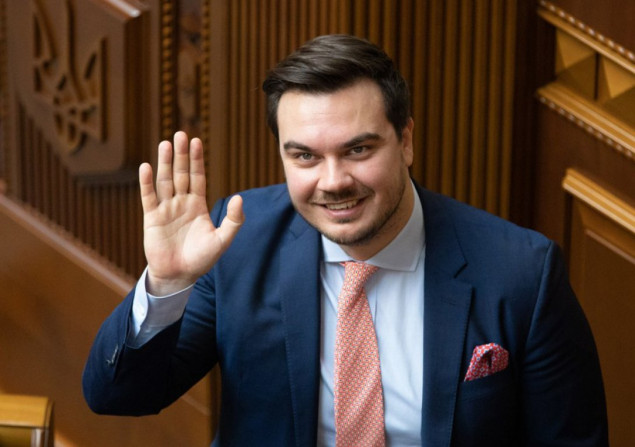
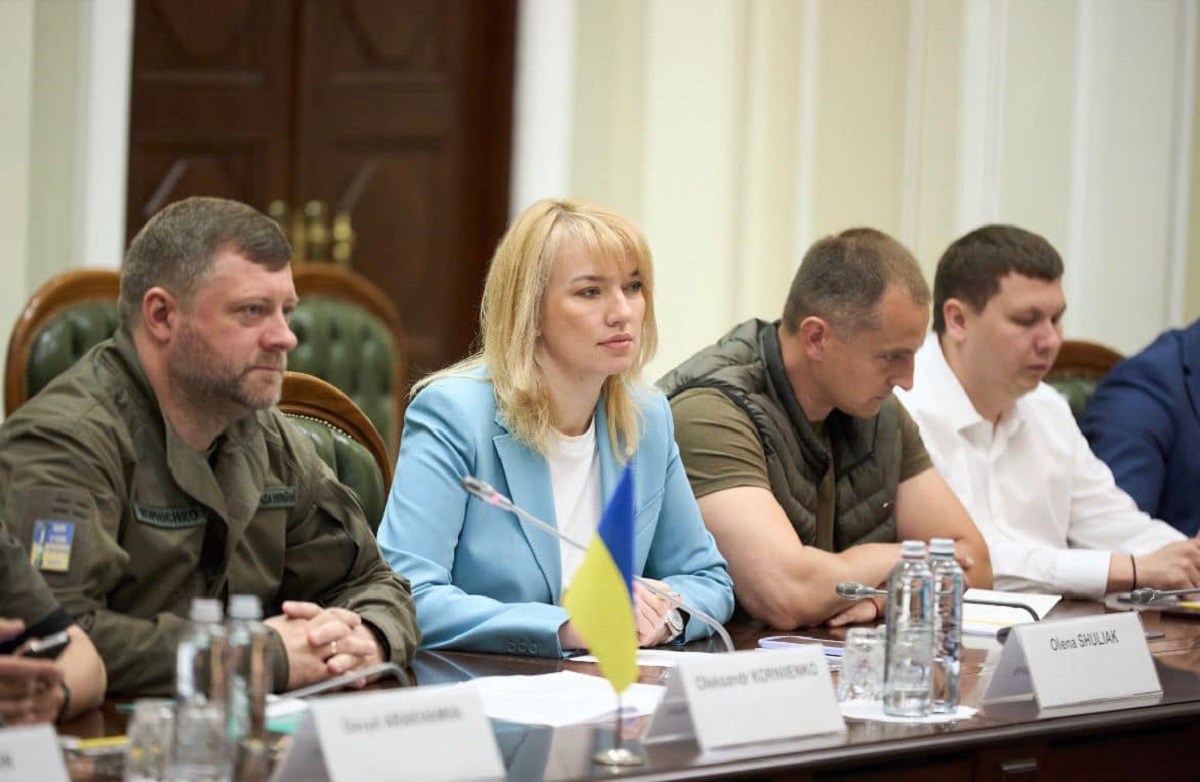
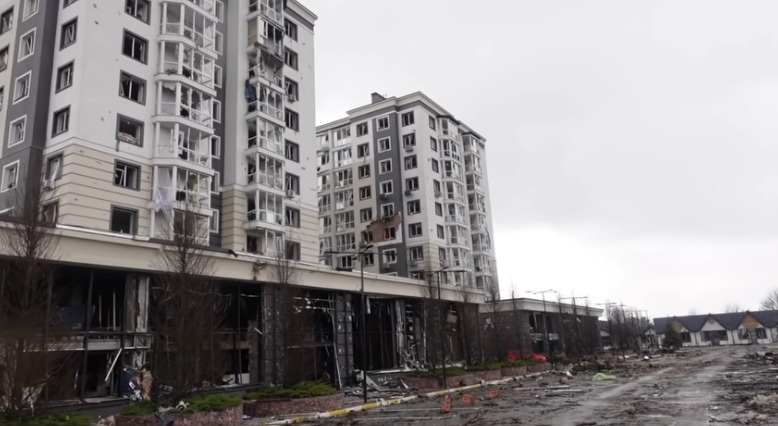
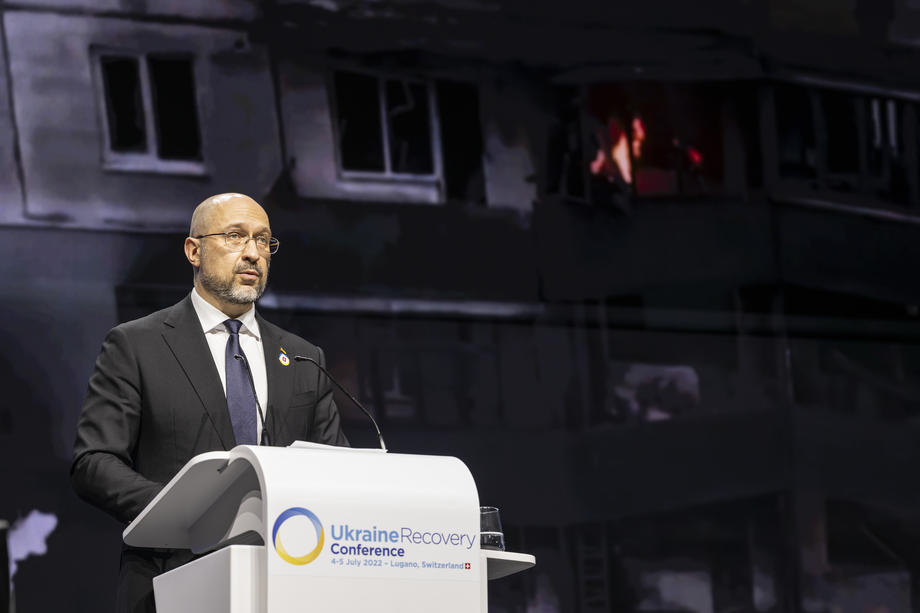

.jpg)
 Login with Google
Login with Google